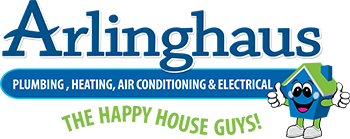Air conditioners, heat pumps and furnaces, oh my! It can be really difficult to separate out the functions of these appliances and figure out what options are best for your home. The versatility of the heat pump can be a great choice for many houses as the single unit offers both heating and cooling, but only in certain circumstances. The effectiveness of a heat pump over an air conditioner depends on your budget and your heating needs.
What Is a Heat Pump?
A heat pump sounds like a very different piece of equipment from an air conditioner, but there are many similarities. A heat pump, like an air conditioner, uses a series of internal components to extract heat from the indoor air, expels that heat into the outdoors then blows the cooled air back through your ductwork. If you have a furnace, you probably use its air handling functions to move the air.
How Does an Air Conditioner Differ From a Heat Pump?
An air conditioner can only run one way, removing heat from the inside and taking it outside to make the home cooler. A heat pump can switch directions, pulling heat from the outdoors and moving it inside to heat the home. Heat pumps also rely on different sources for energy. Air conditioners are all air-source, meaning they pull heat from the air. Heat pumps can remove heat from the ground, air or water, depending on the heat pump. Some heat pumps can do more than one. For example, there are dual-source geothermal heat pumps that can use ambient temperature, when it is most appropriate, and rely on the relatively stable underground temperatures when the air outside is too hot or cold.
Which Is Better for Cooling?
Since heat pumps and air conditioners cool a home in very much the same way, you may not notice a lot of difference between the two for cooling. Like air conditioners, the efficiency of heat pumps is calculated in the Seasonal Energy Efficiency Ratio (SEER), which measures the output in British Thermal Units (BTUs) based on a variety of outside temperatures, in relation to energy consumed. Both appliances are also measured by the Energy Efficiency Ratio (EER) as well, which determines the efficiency of output in relation to energy used to cool to a set outdoor temperature. As such, a heat pump and an air conditioner of a similar output in BTUs with identical SEER/EER ratings will probably provide very similar cooling quality. The U.S. Department of Energy notes that heat pumps may be slightly better at removing humidity from the home, which can certainly make a difference in comfort in a climate with higher humidity.
Will a Heat Pump Increase My Energy Efficiency?
There are two instances in which a heat pump may increase your energy efficiency. Since air-source heat pumps and air conditioners work very similarly, machines with equivalent measured efficiency may not differ much. It is in other forms of heat pumps, and in the use of the heat pump for heating, where the difference in energy efficiency can be the greatest. Using a heat pump for heating during the winter could cut heating costs by as much as 50 percent—if the ambient temperature is high enough to effectively warm your home.
Do I Need a Heat Pump, an Air Conditioner and a Furnace?
In parts of the country with milder winters, homeowners may be able to get away with using a heat pump, an interior evaporator coil and an air handling unit. They may not need a furnace at all. However, experts differ on the ability of a heat pump to handle the heating load in areas with colder winters. Some say that heat pumps are only effective in climates with temperatures that rarely drop below 40 degrees. Others argue that geothermal or dual-source heat pumps can provide the vast amount of heating needed for homes, even those in regions with the very coldest weather. Heat pumps provide effective cooling in virtually any climate, so they could replace an air conditioner in many scenarios. However, heat pumps may also cost more to purchase and install than an air conditioner. It would not be necessary to have all three appliances in one home. Many homes find ideal heating and cooling with a heat pump and a furnace or an air conditioner and a furnace.
Choosing between an air conditioner and a heat pump depends on what you need for heating. In some instances, a heat pump may be able to replace both an air conditioner and a furnace. Ask your HVAC technician about your heating and cooling load and the equipment that is most appropriate for your needs.


